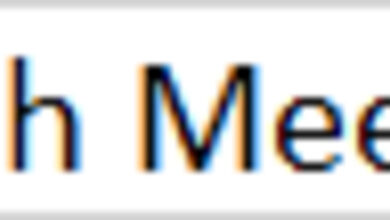Blockchain-Enabled Solutions for Sustainable Resource Management: Advancements, Challenges, and Opportunities

The urgency to address sustainable resource management has grown due to environmental concerns and resource scarcity. Blockchain technology offers core features like value-based business models, resource tracking, information transparency, smart contracts, and consumer engagement that can enhance sustainability efforts. Value-based business models align activities with sustainable development goals, ensuring long-term well-being. Blockchain-enabled resource tracking enhances accountability, minimizes waste, and optimizes resource utilization. Transparency fosters trust and compliance with regulations. Smart contracts automate secure transactions and enforce sustainability criteria. Consumer engagement is empowered through transparent information. Exploring blockchain solutions holds immense potential for advancing sustainability. However, addressing challenges and capitalizing on opportunities is crucial for realizing blockchain’s transformative impact on sustainable resource management.
The goal of the collection is to address inefficient and unsustainable resource management practices by exploring blockchain-enabled solutions. This involves adopting value-based business models, accurate resource tracking, information transparency, smart contracts, and consumer engagement. By shifting towards long-term sustainability and integrating blockchain technology, businesses can ensure transparency and accountability in the supply chain. Smart contracts automate sustainability criteria, while information transparency empowers consumers to make informed decisions. Engaging consumers in the resource management process fosters a responsible consumer culture. The research aims to highlight advancements, challenges, and opportunities in blockchain-enabled sustainable resource management for more efficient and transparent practices across industries.
The collection covers various themes in blockchain-enabled sustainable resource management. Authors are invited to explore topics such as value-based business models, resource tracking, information transparency, smart contracts, consumer engagement, decentralized governance, circular economy integration, scalability and energy efficiency, interoperability and integration, and regulatory and legal considerations. Original research articles, case studies, systematic reviews, and opinion papers are welcome.
Contributions should provide insights into advancements, challenges, and opportunities in the field, offering practical recommendations and future research directions. The goal is to enhance the understanding and application of blockchain-enabled solutions in sustainable resource management.
Conflict of Interest statements:
– Dr. Ragnhild Silkoset is the founder and CEO of prisbeslutninger.no.
– Prof. Sudhanshu Joshi holds two patents related to the field of the Internet Of Things.
The other Topic Editors declare no competing interests with regards to the Research Topic.
Keywords:
Value-based Business Models, Resource Tracking, Information Transparency, Smart Contracts, Consumer Engagement, Decentralized Governance, Circular Economy integration, Scalability and Energy Efficiency, Interoperability and Integration, Regulatory and Legal Considerations
Important Note:
All contributions to this Research Topic must be within the scope of the section and journal to which they are submitted, as defined in their mission statements. Frontiers reserves the right to guide an out-of-scope manuscript to a more suitable section or journal at any stage of peer review.
The goal of the collection is to address inefficient and unsustainable resource management practices by exploring blockchain-enabled solutions. This involves adopting value-based business models, accurate resource tracking, information transparency, smart contracts, and consumer engagement. By shifting towards long-term sustainability and integrating blockchain technology, businesses can ensure transparency and accountability in the supply chain. Smart contracts automate sustainability criteria, while information transparency empowers consumers to make informed decisions. Engaging consumers in the resource management process fosters a responsible consumer culture. The research aims to highlight advancements, challenges, and opportunities in blockchain-enabled sustainable resource management for more efficient and transparent practices across industries.
The collection covers various themes in blockchain-enabled sustainable resource management. Authors are invited to explore topics such as value-based business models, resource tracking, information transparency, smart contracts, consumer engagement, decentralized governance, circular economy integration, scalability and energy efficiency, interoperability and integration, and regulatory and legal considerations. Original research articles, case studies, systematic reviews, and opinion papers are welcome.
Contributions should provide insights into advancements, challenges, and opportunities in the field, offering practical recommendations and future research directions. The goal is to enhance the understanding and application of blockchain-enabled solutions in sustainable resource management.
Conflict of Interest statements:
– Dr. Ragnhild Silkoset is the founder and CEO of prisbeslutninger.no.
– Prof. Sudhanshu Joshi holds two patents related to the field of the Internet Of Things.
The other Topic Editors declare no competing interests with regards to the Research Topic.
Keywords:
Value-based Business Models, Resource Tracking, Information Transparency, Smart Contracts, Consumer Engagement, Decentralized Governance, Circular Economy integration, Scalability and Energy Efficiency, Interoperability and Integration, Regulatory and Legal Considerations
Important Note:
All contributions to this Research Topic must be within the scope of the section and journal to which they are submitted, as defined in their mission statements. Frontiers reserves the right to guide an out-of-scope manuscript to a more suitable section or journal at any stage of peer review.



